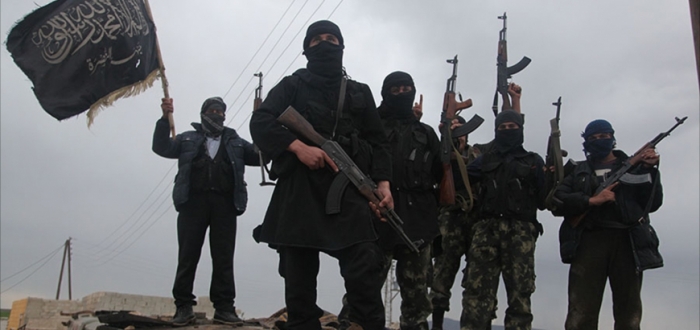The announcement by the Nusra Front on Thursday that it was cutting ties with Al-Qaeda and adopting “Fatah al-Sham Front” (Front for the Conquest of Syria) as its new name provoked a myriad of reactions among supporters and skeptics, including jihadi figures and others following the events in Syria familiar with Islamist movements.
Nusra, alongside the Islamic State group and Jund al-Aqsa, is one of the most prominent armed groups in Syria which includes foreign fighters, who are mostly known for extremism and militancy.
Nusra will face three probable scenarios:
1. Support for breaking ties.
These will most likely be Syrians fighting in the Nusra Front ranks who gave their loyalty and support to the Nusra emir, Abou Mohamed al-Jolani, on one hand, in addition to many of them supporting the fight against the Syrian regime and alleviating the attacks on civilians, and whom the great powers, including America and Russia, targeted under the pretext of them belonging to Nusra and Al-Qaeda, according to a media activist who posed a number of questions about the cutting of ties to Nusra fighters in the Idleb countryside.
2. Defections and formation of a new faction
On another side, those following the Syrian situation have said that “there are a number of members inside Nusra ranks who may reject cutting ties with Al-Qaeda. They may see it as breaking the legitimate pledge of allegiance to the Al-Qaeda emir Ayman al-Zawahiri, which they took when they joined Nusra. This will compel a number of them, mostly foreign fighters, to form a new neutral faction, as happened with the announcement of Abou Abdel Aziz al-Qatari, head of Jund al-Aqsa, after the split between (ISIS leader) Abou Bakr al-Baghdadi and Abou Mohamed al-Jolani around the announcement of the Islamic State group in 2013.
3. Joining the Islamic State group
Every now and then we see divisions among the Islamist groups in Syria and some joining the Islamic State, mostly foreign fighters, who concealed their loyalty to the Islamic State group and remained as sleeper cells working for the organization, or found a reality for achieving “their aim in establishing an Islamic caliphate” inside the Islamic State group.
An opposition leader who asked not to be named told Al-Souria Net that, “With the breaking of ties a number of foreigners, who had not resorted to the Islamic State group because the Nusra Front’s project was to establish an Islamic caliphate in Syria, and would see the breaking of ties as giving up this aim, could be pushed to defect and join the Islamic State’s ranks.”
In the opinion of one of Al-Qaeda’s theorists, Tarek Abdul Haleem, in a tweet, “Nusra, with its breaking of ties, overturns a legitimate pledge of allegiance,” something that approaches apostasy, pushing a number of Nusra fighters to reconsider whether its rule is legitimate, regardless of its authenticity, to break ties and subsequently defect from it.
Islamic scholar Hani al-Subaie saw that the breaking of ties overturns the pledge of allegiance, and “corrupts more than it serves.” He said: “If the ties with Al-Qaeda were an obstacle to uniting the factions, they would have united with Nusra.”
Subaie added that: “The term ‘breaking ties’ that has been given by some means breaking a legitimate pledge of allegiance! You, many factions, go and unite without Nusra and its pledge of allegiance to Al-Qaeda! Bashar is waiting for you.”
At the opposite end, jihadi and other figures following the fighting groups in Syria supported the split.
The salafi jihadi theorist Abou Mohamed al-Maqdissi said on his Twitter account that he “respects the judgement of the mujahideen. They saw the interests of the jihad and support for Islam and Muslims. We exhort them.”
From another angle, the salafi jihadi movement theorist Abou Baseer al-Tartousi supported breaking of ties between the two groups, but said the step came late.
Tartousi said on his website that “breaking ties is a step in the right direction, we congratulate and support it.” He added: “We call on all factions and Syrian groups to interact with it positively to serve the Syrian revolution and its aims.”
The Army of Islam said that “the step is in Syrians’ interests, but it is not enough. The military school employed by the (Nusra) Front will not be affected.” It added that there were many internal and external obstacles hindering the idea of uniting the factions put forward by Nusra, according to a report by Al Jazeera Net.
The same site quoted a leader in Ahrar al-Sham, Hossam Salama, as saying that “breaking ties between Nusra and Al-Qaeda is an important step for eliminating all the pretexts which want the Syrian revolution not to succeed.”
This article was translated and edited by The Syrian Observer. Responsibility for the information and views set out in this article lies entirely with the author.


